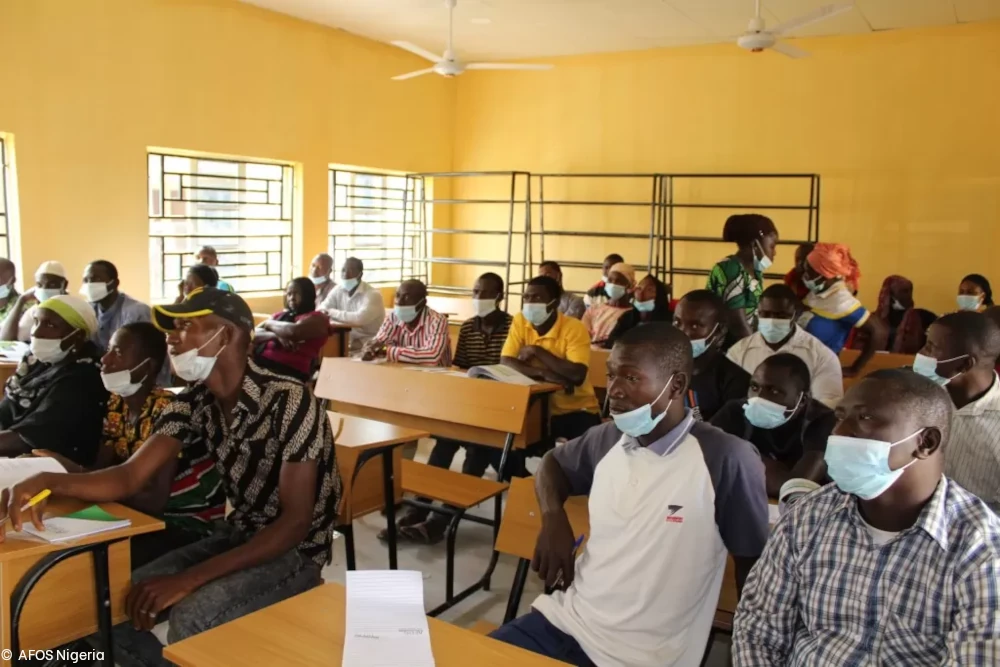By the end of 2023, we would like to have reached more than 60,000 smallholder farmers with AGRAR
In 2022, we were able to train more than 15,000 smallholder farmers in Nigeria within our AGRAR project. In the first phase of the project, we already reached 30,000. By the end of 2023, we would like to have reached over 60,000 smallholders with our measures. At the same time, AFOS is promoting the adaptation of certification to national and international standards.

AFOS AGRAR project in Nigeria
AGRAR focuses on three key development areas:
- Development of sustainable agricultural practices
- Business management related to agricultural production
- Effective cooperative formation.
These measures lead both to improved agricultural cultivation methods and to the creation of rural prosperity and positive synergies within the value chain.
Our program to improve the livelihoods of smallholder farmers is part of the planned measures of the AFOS INGO AGRAR Phase II project (March 2021 to December 2024). The aim is to build the capacity of smallholder farmers in Nigeria through a training programme on good agricultural practices and farm management . These are mainly the value chains of the production of cereals and pulses, poultry, aquaculture, cashews and cassava. The skills of smallholders are being expanded in order to achieve higher yields and thus higher incomes.
AFOS Nigeria signs AHK agreement for TVET courses
Um die genannten Ziele zu erreichen, ist die Zusammenarbeit und Kooperation mit Beteiligten vor Ort essentiell. Wir freuen uns daher sehr, dass AFOS Nigeria im Dezember 2022 eine Kooperationsvereinbarung mit der Delegation of German Industry and Commerce in Nigeria abgeschlossen hat. Das Ziel der Zusammenarbeit ist die Anpassung unserer Bildungsangebote – die technische Berufsbildung (Technical Vocational Education and Training – TVET) und die Arbeit eines von AFOS initiierten landwirtschaftlichen Ausbildungszentrums (Agricultural Training Centre – ATC) – an nationale und internationale Zertifizierungsstandards.

Trainees will receive certificates with global relevance in the future
Through this cooperation, the parties involved have the opportunity to actively exchange ideas and adapt their curricula accordingly. The development and implementation of joint processes for the adaptation of the AFOS TVET programme offering and the ATC are thus promoted and valuable learning processes at various levels are made possible. In the future, smallholder farmers in Nigeria will have the opportunity to acquire certificates with global relevance.
The AFOS Foundation works with national and international institutions to ensure the provision of the highest level of training through its AGRAR ll project in Nigeria.


